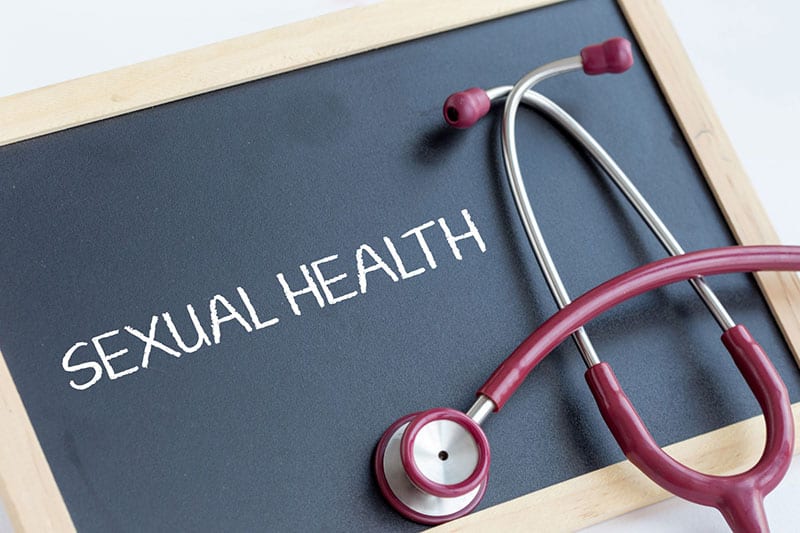Many people find their sexual health an awkward thing to talk about and are hesitant to seek advice from healthcare professionals. This is normal and totally understandable, although it is important to stay informed on sexual health and STIs (sexually transmitted infections) both for your overall wellbeing and that of your sexual partner/s.
At Yarra Medical, we want you to feel relaxed about coming in and having a chat with one of our GPs about any of your concerns at our sexual health clinics, located at Richmond and Abbotsford. All our GPs are properly trained in treating STIs and can offer you advice on prevention, detection and treatment in a professional and discreet manner.
What are STIs?
Sexually transmitted infections (STIs) can be caused by bacteria, viruses and parasites. They’re spread through sexual activity, which includes the obvious – vaginal, oral and anal sex – and the not-so-obvious – kissing, genital touching or rubbing, and using sex toys.
STIs are one of those things that most people don’t believe they’ll get, but if you’re sexually active and don’t practice safe sex, you are at risk. Having unprotected sex with a person who has an STI puts you at high risk of catching that infection. It’s also worth noting that an STI can be passed from mother to child during pregnancy and at birth.
Always keep in mind, all STIs are treatable and most are curable.
Here are some STI conditions:
- Chlamydia
- Genital herpes
- Genital warts
- Gonorrhoea
- Syphilis
- Hepatitis B
- HIV
- Trichomoniasis
Worldwide, the incidence of STIs is on the increase, with 1 million acquired every day. In Australia, as in many other developed countries, we’ve seen a sharp rise in cases of chlamydia and gonorrhoea. This is due to several reasons, one of which is fewer people using condoms. “Hook-up” apps like Tinder, Bumble and happn are also partly responsible.
If you’ve recently had unprotected sex, which includes a condom breaking during intercourse, or are at the beginning of a new relationship, and suspect you have symptoms of an STI, please call us at Yarra Medical for a quick check-up at our sexual health clinics. Remember, not all genital conditions are the result of STIs, but you won’t know until you come in and see us.
STI Symptoms
Before we get into the symptoms, it’s important to know that, as stated above, not all conditions of the genitals are STIs, but, by the same token, you can have an STI without any obvious symptoms.
Symptoms that are produced by STIs include:
- Burning or pain during urination
- Blisters, ulcers, warts, sores or rashes in the genital area
- Pain in the testicles
- Unusual discharge from the vagina, penis or anus
- Bumps or lumps on the genitals
Diagnosing STIs
Diagnosing STIs is often done with a simple urine or swab test. Some STIs can be diagnosed and treated on the day of your visit. Some results can take up to a week.
At Yarra Medical, we stock on site at both our Richmond and Abbotsford sexual health clinics most drug treatments for common STIs. We also offer on-site pathology and blood testing.
Safe Sex
Safe sex is preventing the exchange of semen, vaginal fluids and blood between sexual partners. The most common form of safe sex is called ‘barrier protection’, which basically means using products which inhibit the exchange of fluids such as male condoms, female condoms or dental dams.
Things to keep in mind when using condoms:
- Condoms should be used from the start of sex to the very end.
- Make sure you don’t tear or break the condom when you open the packet.
- Use water-based lubricants, as oil-based ones can weaken or split condoms and dams. Examples of oil-based lubricants are Vaseline, baby oil and massage oil.
- Since condoms do not cover the entire genital area, they are not 100% effective against the skin-to-skin spread of STIs such as genital warts and herpes.
Our world is full of (mis)information. Here’s some myths you should disregard:
- Practising safe sex implies that you or your sexual partner have an STI
- Taking the pill means that you are practicing safe sex
- Lesbians don’t get STIs
- Condoms ruin the mood
Your Sexual Health is Important
STIs are a normal occurrence and do not mean there is anything wrong with you. They’re not something you should feel embarrassed about; we see many people at our sexual health clinics seeking information and/or treatment. Remember, your sexual health is important to you and your partner/s, and not something you should feel too uncomfortable to talk about.
Take a look at our Sexual Health page for more information on particular conditions and topics.
Book online to see one of our GPs.
For more information on sexual health and STIs, take a look at the excellent Better Health website.

